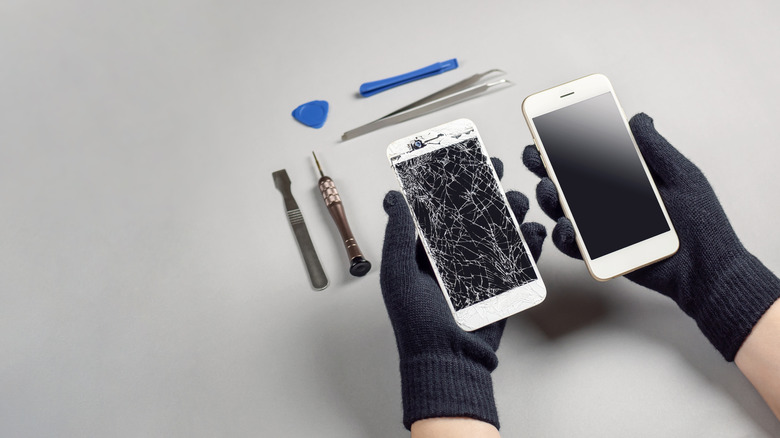Here's Why You Should Think Twice About Getting The Extended Warranty
If you've ever made a large purchase — an appliance, a vehicle, or exercise equipment, for example — you've probably had the experience of being offered an extended warranty. That's the warranty coverage that's supposed to provide protection beyond the manufacturer's warranty, either for a longer period of time or by offering different terms. The extended warranty may sound like a good deal at first. It's generally priced low, relative to the cost of the item being purchased, and it will speed the process along in the event anything breaks. But there are some real concerns to watch for.
If you're considering an extended warranty be sure you read the fine print, as it often contains exclusions that give the provider the right to deny coverage for a wide range of reasons, according to the Federal Trade Commission. Your claim could be turned down due to accidental damage or for failing to follow specific warranty instructions for routine maintenance, for example.
Many extended warranties include a fee or deductible that must be paid for each claim. You may also be on the hook for the cost of shipping the item to a repair center, so be sure those specifics are spelled out in the contract.
The existing warranty may be enough
In the case of appliances, most major brands today are sold with a manufacturer's warranty that lasts for one year from purchase. According to Houselogic, appliances rarely break during the term offered by extended warranties, which can range from one to three years past the manufacturer's warranty. So purchasing the protection may give you a little peace of mind, but you could also be throwing money away.
Following the expiration of the manufacturer's warranty there exists, in many states, an implied warranty. These are state laws that stipulate that an appliance should function for a normal lifespan. If it doesn't, and the company won't work with you to repair or replace it, you can try and negotiate with them through the Better Business Bureau's mediation program or, in some states, take them to court.
So when faced with the choice to purchase an extended warranty, consider the cost to repair the product, paid for yourself. Repairs on many items are often less than, or not much more than, the cost of the warranty, plus deductible or fee, and shipping costs you have to cover. And many companies will work with you to repair a broken product — even when your product is out of warranty — simply to maintain goodwill and keep a customer.

